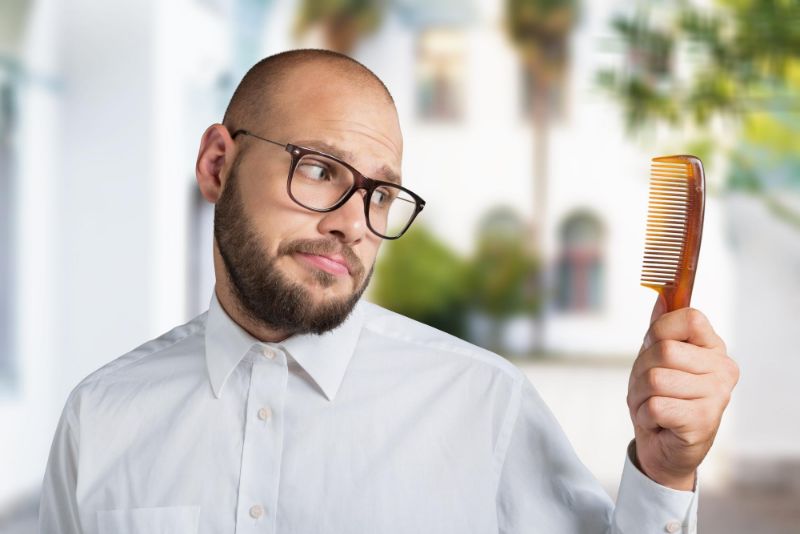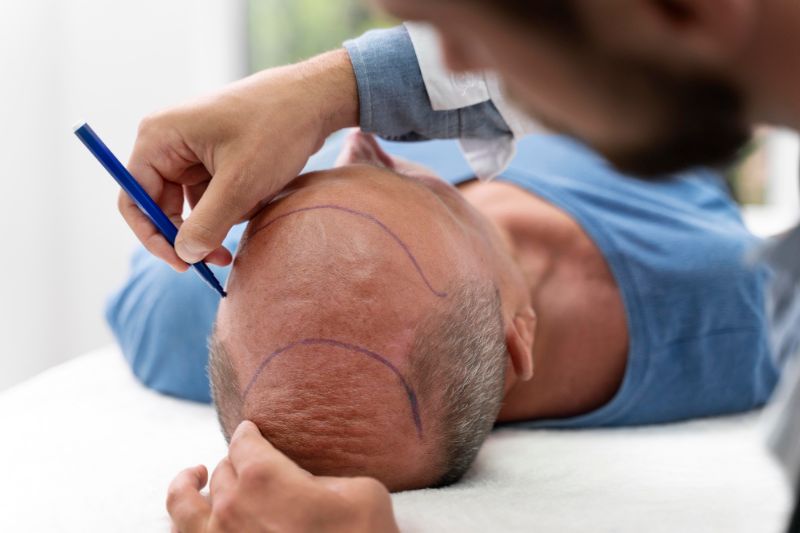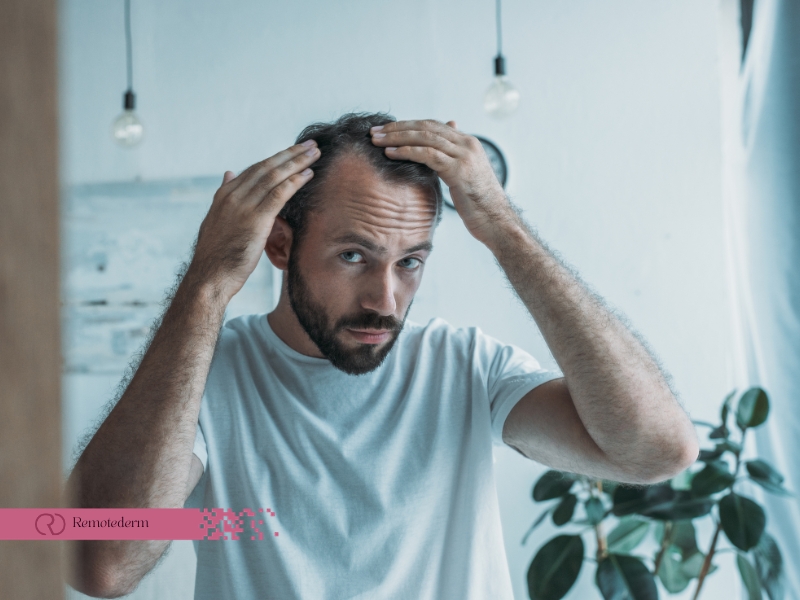Losing your hair can be a distressing experience, impacting your self-esteem and overall well-being. In this comprehensive guide, we’ll explore the intricate relationship between hair loss and testosterone, offering a thorough understanding of the subject. If you’re concerned about hair loss and its potential link to testosterone, this article is designed to provide you with valuable insights and guidance on how to manage and address this common issue.
The Basics of Hair Loss: Alopecia and Testosterone
Before we delve into the connection between hair loss and testosterone, it’s essential to grasp the fundamentals of hair loss itself. Hair loss, medically known as alopecia, can manifest for a variety of reasons. These include genetic predisposition, hormonal imbalances, underlying medical conditions, and even high levels of stress. The most prevalent type of hair loss is androgenetic alopecia, affecting both men and women. It is closely associated with the hormone dihydrotestosterone (DHT) and its influence on hair follicles.
The Role of Testosterone
Testosterone is a naturally occurring hormone found in both men and women, albeit at varying levels. It plays a pivotal role in the development of secondary sexual characteristics, such as muscle mass and facial hair growth. However, testosterone can also influence hair growth, forming the basis of our exploration into the connection between hair loss and testosterone.
Hair Loss From Testosterone
The connection between testosterone and hair loss is often linked to the conversion of testosterone into DHT, a process governed by the enzyme 5-alpha reductase. DHT exhibits a higher affinity for androgen receptors in hair follicles, which leads to the miniaturization of hair and a gradual reduction in hair thickness and density. This phenomenon is most commonly observed in male pattern baldness but can also affect women, albeit to a lesser extent.

Does Testosterone Cause Hair Loss?
It’s important to clarify that testosterone itself is not the primary cause of hair loss. Instead, it is the byproduct, DHT, that exerts influence on hair follicles. In individuals with a genetic predisposition to androgenetic alopecia, the presence of DHT can lead to hair thinning and eventual hair loss. It’s worth noting that not everyone with high testosterone levels will experience significant hair thinning.
Seeking Professional Guidance
If you’re dealing with hair loss concerns and suspect a link to testosterone, seeking professional assistance is a prudent step. Online hair loss dermatologists are well-equipped to provide accurate diagnoses and recommend tailored treatments. They can offer expert guidance, ensuring you receive the support you need to regain your confidence and address your hair loss concerns.
Treatment Options
When it comes to addressing hair loss concerns, it’s crucial to recognize that there is no one-size-fits-all solution. Different individuals may respond differently to various treatment options, and the effectiveness of these treatments can vary based on a multitude of factors.
1. Minoxidil
Minoxidil has been a trusted ally in the battle against hair loss for many individuals. This topical solution has gained popularity for its ability to stimulate hair regrowth and slow down the progression of hair loss. One of its key advantages is its accessibility—it is available over the counter, making it a convenient choice for both men and women.
Minoxidil functions by improving blood flow to the hair follicles, which, in turn, helps hair growth. It’s essential to be patient with this treatment, as results can take several months to become noticeable. Consistency in applying the solution as directed is crucial for its effectiveness.
2. Finasteride
For men dealing with androgenetic alopecia, finasteride is a commonly prescribed oral medication. This medication works by inhibiting the activity of the enzyme 5-alpha reductase. This enzyme is responsible for converting testosterone into dihydrotestosterone (DHT), which is a hormone associated with hair loss.
By reducing the conversion of testosterone to DHT, finasteride helps to slow down the hair loss process and, in some cases, promote regrowth. It’s important to consult a healthcare professional before starting finasteride, as it requires a prescription.
3. Hair Transplant
This procedure involves the surgical removal of hair follicles from one area of the body (often referred to as the “donor site”) and their transplantation to the balding or thinning areas, known as the “recipient site.” While it is a more invasive procedure compared to topical or oral treatments, hair transplant surgery offers a highly effective solution for those who want to restore a fuller head of hair.

4. Low-Level Laser Therapy (LLLT)
Low-Level Laser Therapy, or LLLT, is a non-invasive approach to stimulate hair follicles and promote hair regrowth. LLLT devices, like laser caps or combs, are designed for home use, making them a convenient option. They increase blood flow to hair follicles, extend the hair growth phase, and may thicken existing hair. LLLT is a gradual process, but it’s an alternative for those who prefer non-invasive treatments over medications or surgery.
Final Thoughts
In conclusion, understanding the connection between hair loss and testosterone is essential for individuals experiencing hair thinning or balding. While testosterone itself is not the direct cause of hair loss, the conversion of testosterone into DHT can lead to these issues, especially in individuals with a genetic predisposition to androgenetic alopecia. Seeking guidance from an online hair loss dermatologist and exploring various treatment options can help you address this concern effectively.
Remember, hair loss is a common issue, and there are numerous resources and professionals available to support you on your journey to healthier, more abundant hair. So, don’t hesitate to take action and regain your confidence and self-esteem. Your hair can be a reflection of your vitality and well-being, and by understanding the complexities of hair loss, you’re taking the first step towards addressing this concern and achieving a fuller, more vibrant mane.
FAQs
- How does testosterone affect hair growth?
Testosterone, found in both men and women, plays a role in hair growth, but it’s the conversion of testosterone into DHT that affects hair follicles.
- Does high testosterone cause hair loss?
High testosterone alone is not the primary cause of hair loss. It’s the presence of DHT in individuals with a genetic predisposition to androgenetic alopecia that leads to hair thinning.
- Is hair loss a common issue?
Yes, hair loss is a common concern, and there are numerous resources and professionals available to support individuals on their journey to healthier hair.
- Are there natural remedies to combat hair loss?
Natural remedies like aloe vera, coconut oil, and ginseng may offer some benefits, although their effectiveness can vary from person to person.
